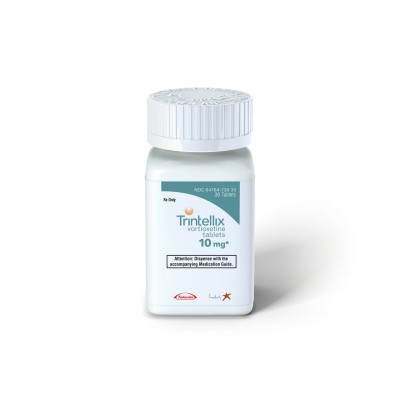Vortioxetine Improves Processing Speed in Depression
 In May 2018, the US Food and Drug Administration (FDA) approved a label change for the antidepressant vortioxetine (Trintellix), reflecting new data that show the drug can improve processing speed, an aspect of cognitive function that is often impaired in people with depression. Vortioxetine was first approved by the FDA for the treatment of depression in 2013.
In May 2018, the US Food and Drug Administration (FDA) approved a label change for the antidepressant vortioxetine (Trintellix), reflecting new data that show the drug can improve processing speed, an aspect of cognitive function that is often impaired in people with depression. Vortioxetine was first approved by the FDA for the treatment of depression in 2013.
The approval followed eight-week double-blind placebo-controlled studies of vortioxetine’s effects on cognitive function in adults aged 18–65 who have depression. The studies were known as FOCUS and CONNECT. Patients received either 10mg/day, 20mg/day, or placebo. Those who took vortioxetine showed improvement on the Digit Symbol Substitution Test, a measure of processing speed, in addition to improvement in their depression.
Editor’s Note: This is the first time the FDA has approved labeling that describes an antidepressant as improving aspects of cognition in depression. Cognition is impaired in many patients with depression, such that this component of the drug’s effects could be of clinical importance. Among the 5 serotonin (5HT) receptor effects of the drug (in addition to the traditional blockade of serotonin reuptake shared by all selective serotonin reuptake inhibitor antidepressants (SSRIs)), it is likely that vortioxetine’s effects in blocking 5HT-3 and 5HT-7 receptors are important to the drug’s effects on processing speed.
Antidepressant Brintellix Renamed Trintellix
You may notice the label on your prescription bottle changing. As of June, the antidepressant vortioxetine (formerly Brintellix) is now called Trintellix. The US Food and Drug Administration approved the change to reduce any possible confusion of the antidepressant with a blood-thinning medication called Brilinta.

